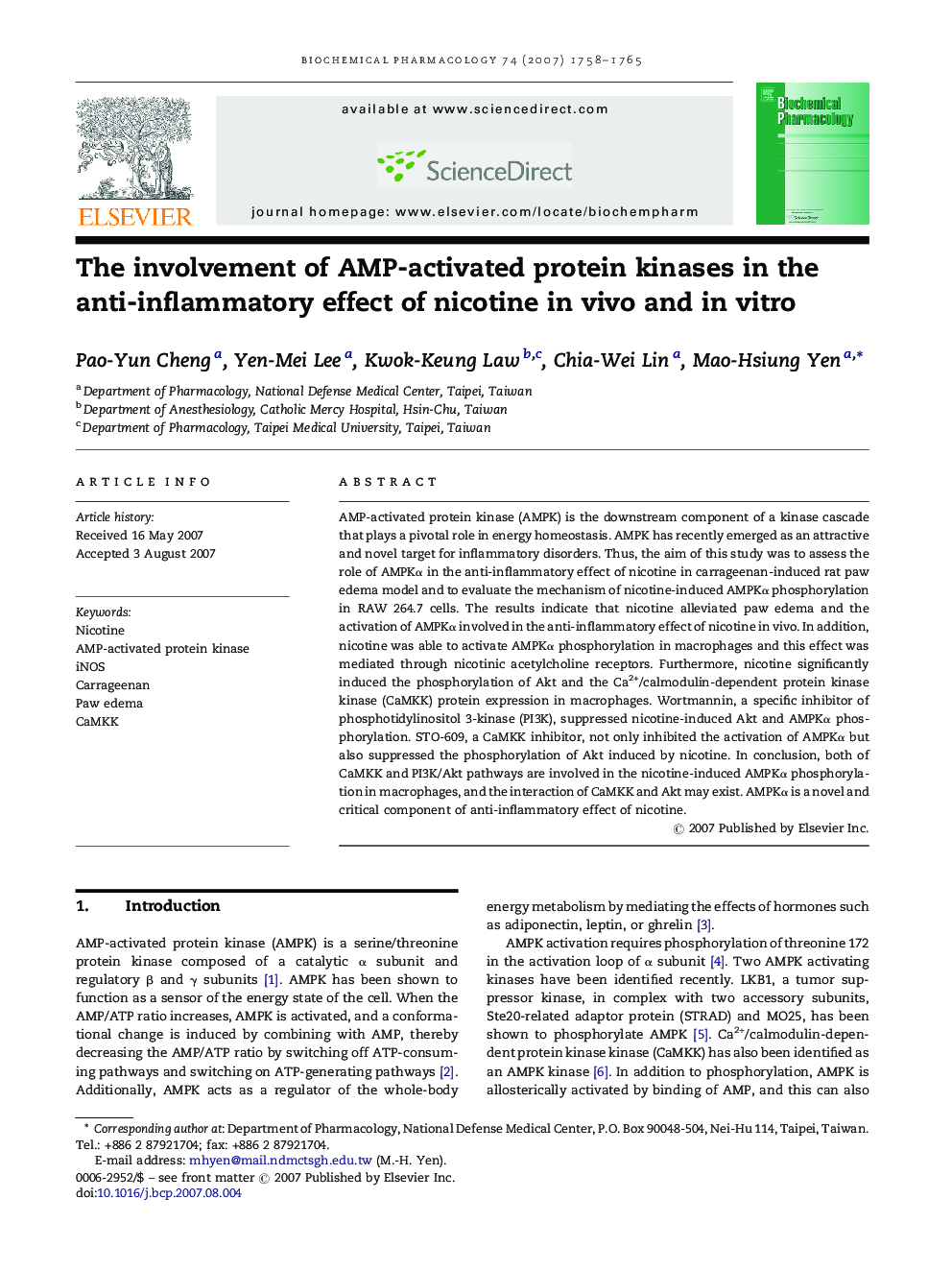| Article ID | Journal | Published Year | Pages | File Type |
|---|---|---|---|---|
| 2514434 | Biochemical Pharmacology | 2007 | 8 Pages |
AMP-activated protein kinase (AMPK) is the downstream component of a kinase cascade that plays a pivotal role in energy homeostasis. AMPK has recently emerged as an attractive and novel target for inflammatory disorders. Thus, the aim of this study was to assess the role of AMPKα in the anti-inflammatory effect of nicotine in carrageenan-induced rat paw edema model and to evaluate the mechanism of nicotine-induced AMPKα phosphorylation in RAW 264.7 cells. The results indicate that nicotine alleviated paw edema and the activation of AMPKα involved in the anti-inflammatory effect of nicotine in vivo. In addition, nicotine was able to activate AMPKα phosphorylation in macrophages and this effect was mediated through nicotinic acetylcholine receptors. Furthermore, nicotine significantly induced the phosphorylation of Akt and the Ca2+/calmodulin-dependent protein kinase kinase (CaMKK) protein expression in macrophages. Wortmannin, a specific inhibitor of phosphotidylinositol 3-kinase (PI3K), suppressed nicotine-induced Akt and AMPKα phosphorylation. STO-609, a CaMKK inhibitor, not only inhibited the activation of AMPKα but also suppressed the phosphorylation of Akt induced by nicotine. In conclusion, both of CaMKK and PI3K/Akt pathways are involved in the nicotine-induced AMPKα phosphorylation in macrophages, and the interaction of CaMKK and Akt may exist. AMPKα is a novel and critical component of anti-inflammatory effect of nicotine.
